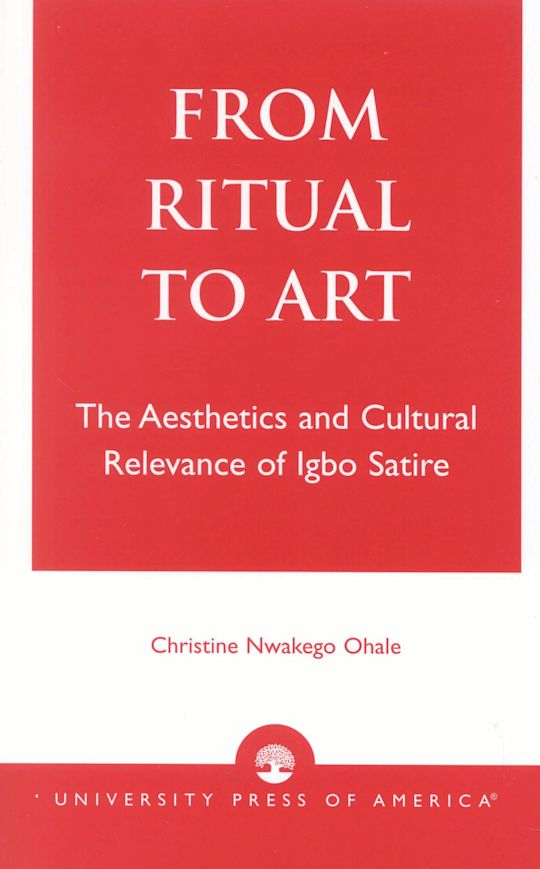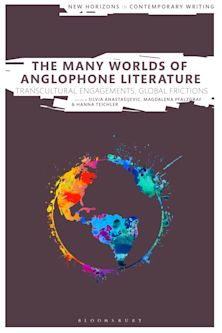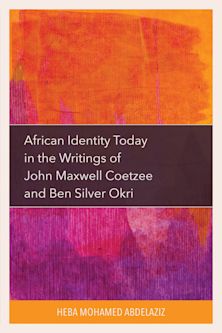- Home
- ACADEMIC
- Literary Studies
- African Literature
- From Ritual to Art
From Ritual to Art
The Aesthetics and Cultural Relevance of Igbo Satire
From Ritual to Art
The Aesthetics and Cultural Relevance of Igbo Satire
This product is usually dispatched within 3 days
- Delivery and returns info
-
Free CA delivery on orders $40 or over
You must sign in to add this item to your wishlist. Please sign in or create an account
Description
The book investigates the development of Igbo satire from its ritual origins as a censure tool to its present function as an aesthetic/entertainment tool. The paradigm is Ihiala, an Igbo town in Anambra State of Nigeria. In tracing this development, the author has analysed the early form of satire in Ihiala and the factors that helped to change the context in which satire was practised. The ultimate cause of this development was the colonial contact- a factor that provided the impetus for the reappraisal of practically every aspect of the social system. Evidently, entertainment was not the sole objective of satire in early Igbo practice; satires were ritual practices that served a multitude of functions for the people and were never meant merely to entertain an audience. But events in Igbo history have helped to change the purpose of the ritual practices from their traditional utilitarian functions to entertainment. The investigation reveals that although the concept of a corrective social function for satire is apparent in the songs, amusement is equally appreciated and, indeed, may be the fundamental impulse of satirical expression. Satirical commentators and performers do not overtly attempt to reform the culprit; instead, their interest is centered on self expression and in the entertainment and amusement of the audience.
Table of Contents
Chapter 2 Preface and Acknowledgments
Chapter 3 Introduction: General Overview and Definition of Concepts; Concepts Related to Satire; Influence of Horace and Juvenal; Notes
Chapter 4 Review of Scholarship: Notes
Chapter 5 The People of Ihiala: The Cultural Attitude of the People of Ihiala; Notes
Chapter 6 Methodology- Method of Data Collection: Notes
Chapter 7 Predominant Themes of Ihiala Satire: Notes
Chapter 8 The Transformation and Performance of Ihiala Satire: The Performance; Notes
Chapter 9 Formal Traits of Ihiala Satire: Notes
Chapter 10 Conclusion: Notes
Chapter 11 Bibliography
Chapter 12 Index
Product details
| Published | Feb 22 2003 |
|---|---|
| Format | Paperback |
| Edition | 1st |
| Extent | 196 |
| ISBN | 9780761824855 |
| Imprint | University Press of America |
| Dimensions | 214 x 181 mm |
| Publisher | Bloomsbury Publishing |
About the contributors
Reviews
-
Though the greatest valued of this study is its preservation of these songs, the book also presents the development of satire from its origins as ritual in Igbo society through changes from a focus on correcting evil by publicly chastising evildoers to is function as entertainment....Specific examples of Igbo songs, translated by the author, provide useful details about these satires, including their use of metaphor, hyperbole, and proverbs. In summary, this work contributes concrete and precise data to the study of African oral literature and to understanding of Igbo culture. Summing Up: Optional. Specialized collections serving upper-division undergraduates and above.
L.W. Yoder, Davidson College, Choice Reviews



































